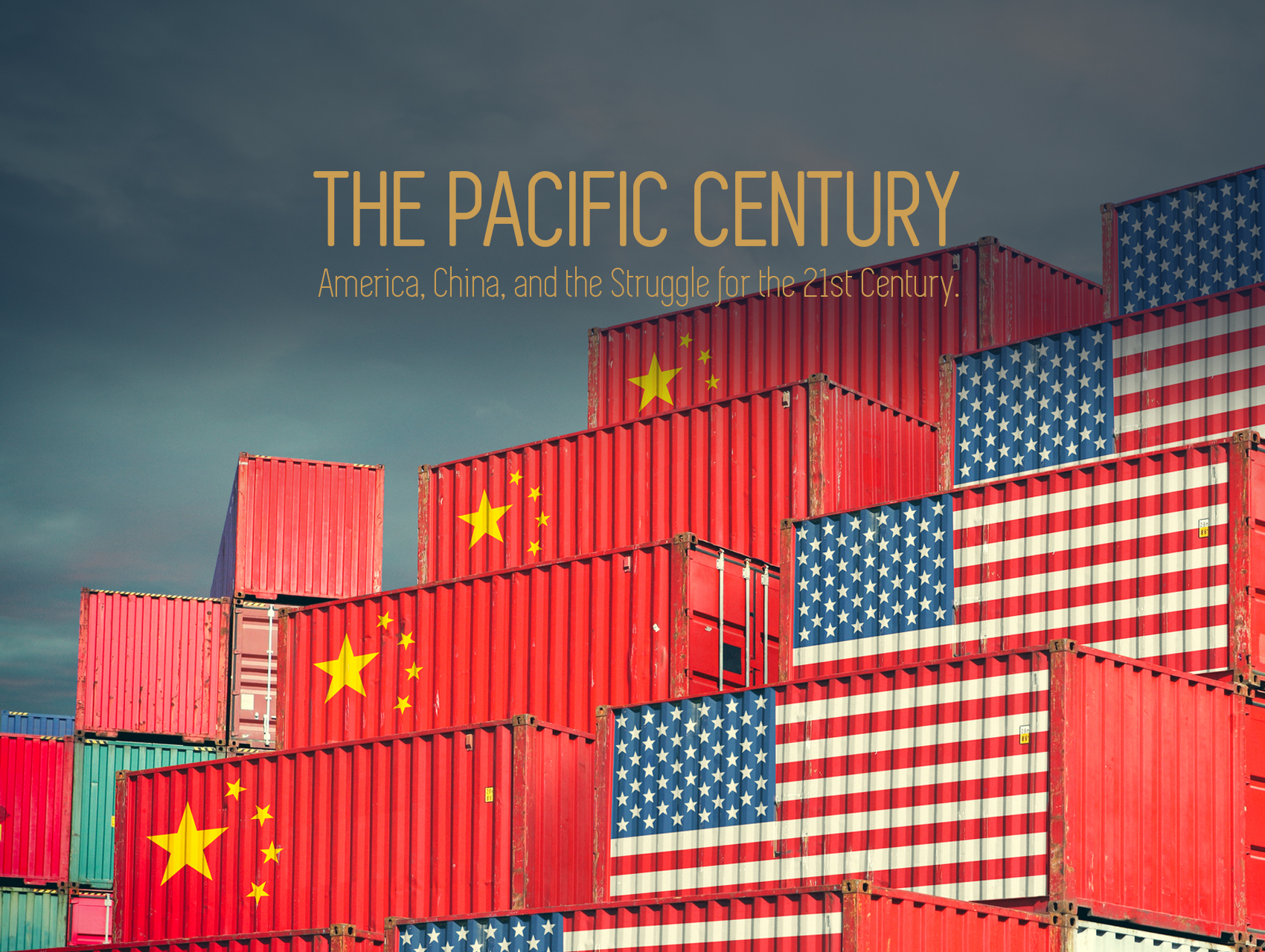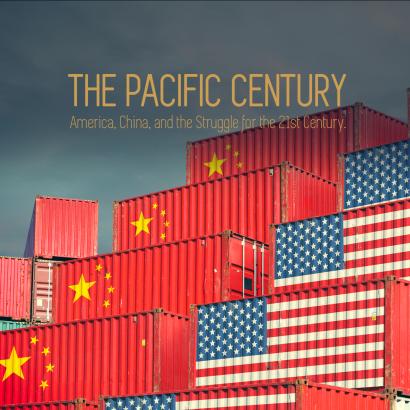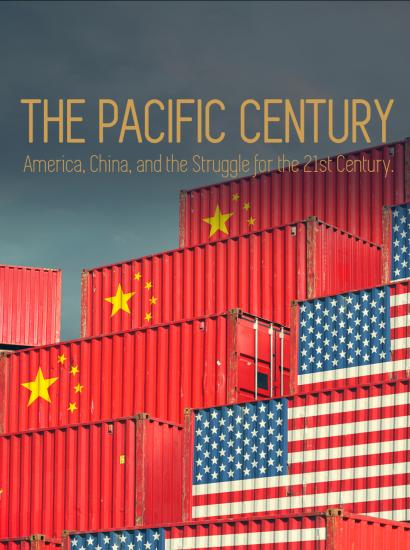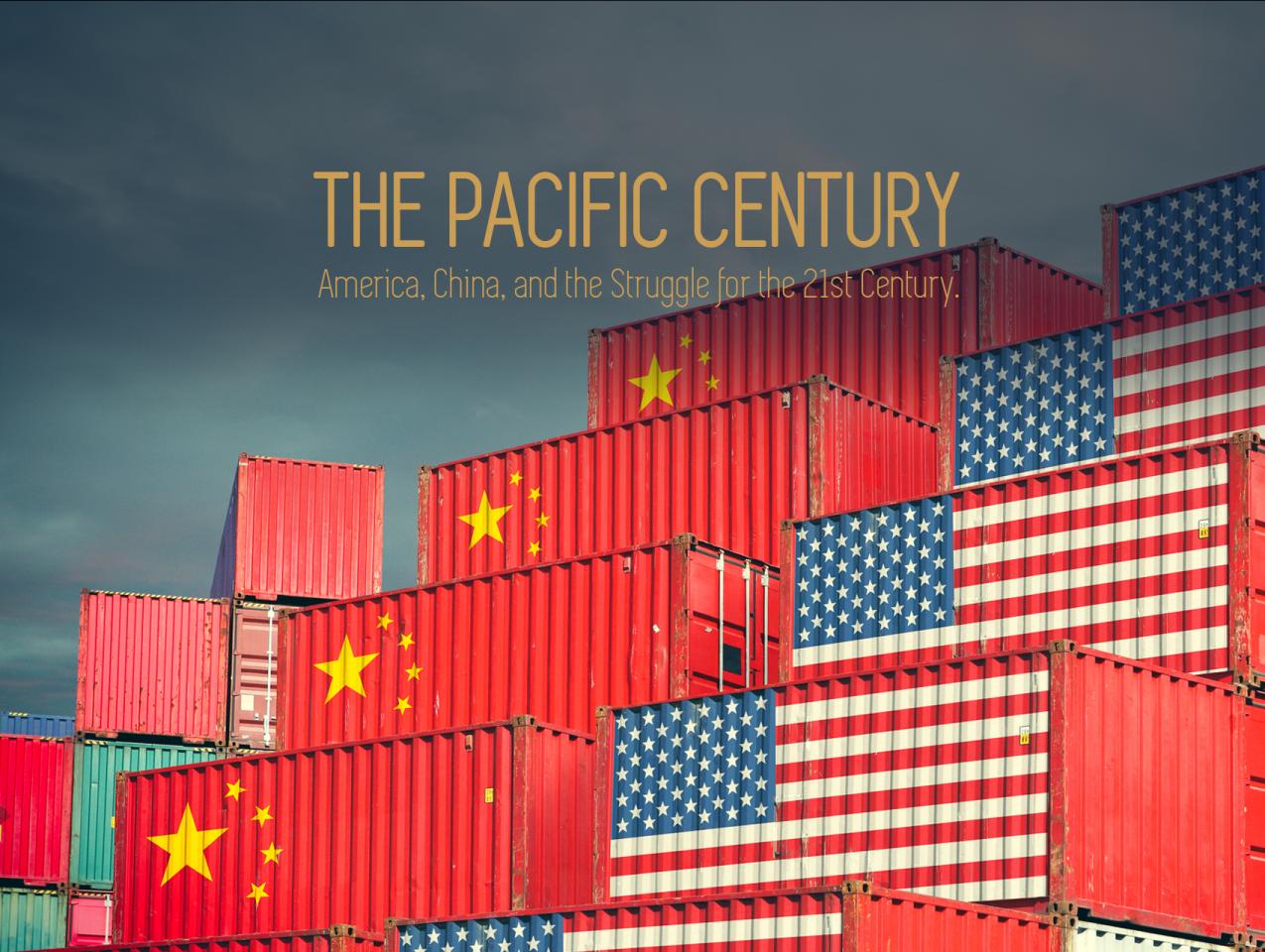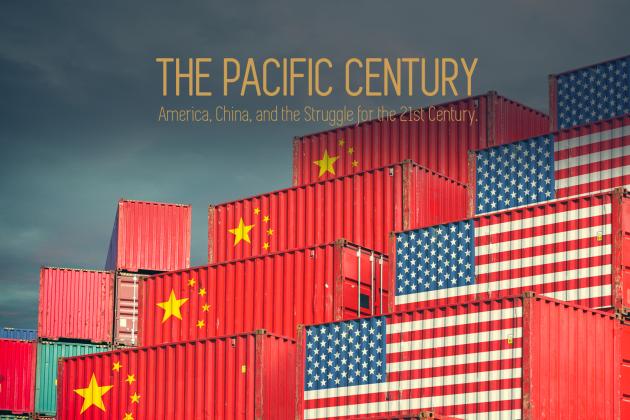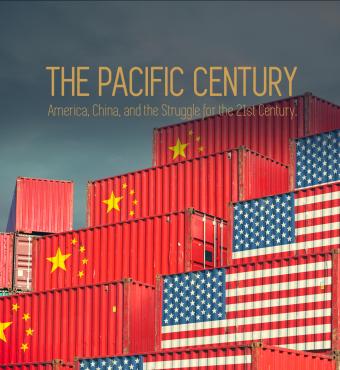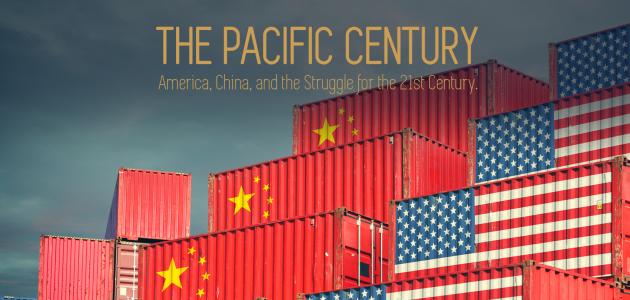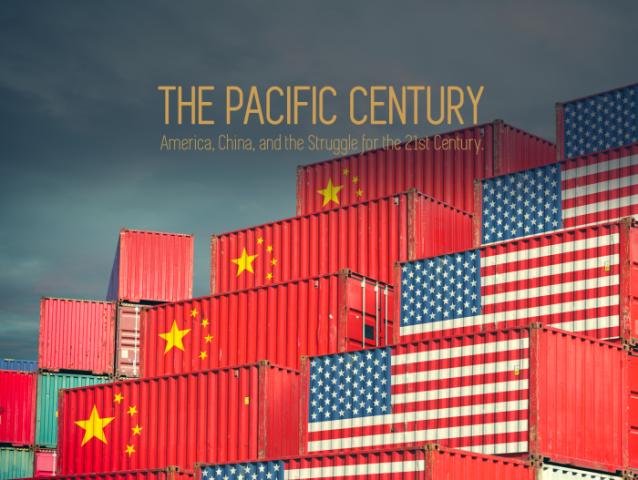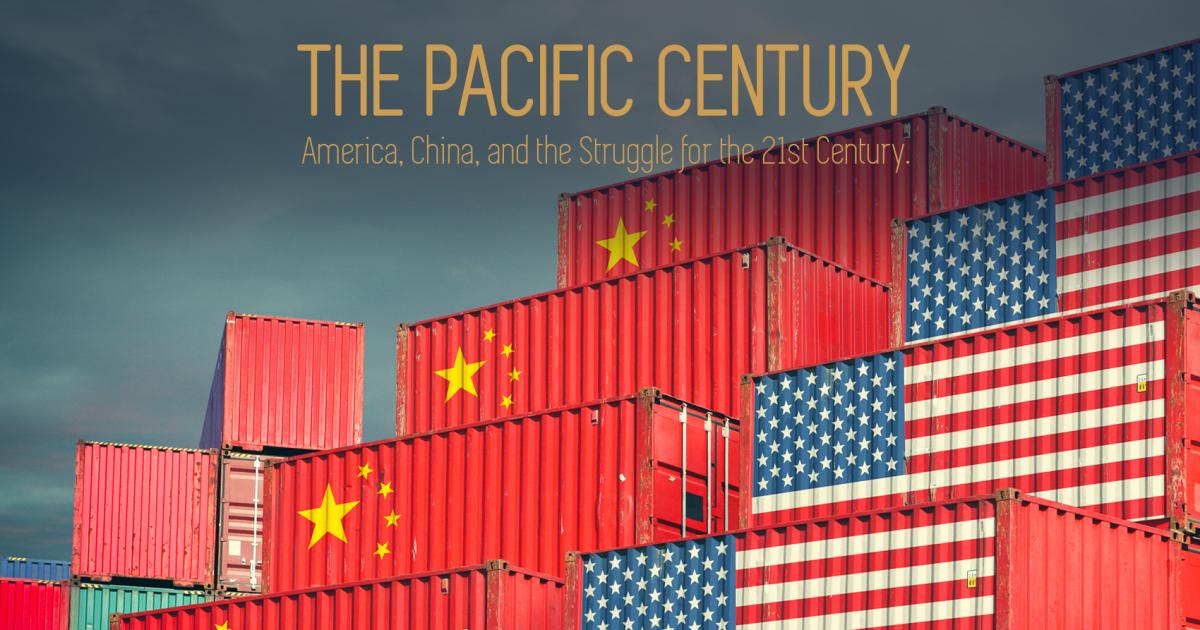Larry Summers discusses why America is committed to economic interdependence with China and how to protect US interests going forward.
>> Michael Auslin: Welcome back to the Pacific, a Hoover Institution podcast on China, America, and the struggle for the 21st century. I'm your host, Michael Ausland. As I was going through the reader mail bag over the past couple of weeks, one theme became predominant. Letter after letter said, would you get someone on who understands economics that can tell us actually what's happening between China and America?
So I thought hard, and then I figured, you know what? There's no one better who knows anything more about the economy than Larry Summers. And to my utter shock and yet great delight, Larry agreed to come on and join us today. And so it is a great pleasure to welcome to the Pacific Century doctor Lauren Summers.
Larry, to his friends, needs no introduction, but I'm gonna give a really brief one. He served as the 71st Secretary of the Treasury in the Clinton Administration, he was the Director of the White House National Economic Council in the Obama Administration. He was the Chief Economist at the World Bank, and, of course, was President of Harvard University, where he is currently the President Emeritus and the Charles W Elliot University professor.
So, Larry, welcome to the Pacific Century.
>> Larry Summers: Glad to be with you.
>> Michael Auslin: Thanks so much for taking time. We've talked a few times in the past about China, about our economic approach to China. But before we get into that, I wanted to ask, I remember the first time I talked with Tim Geithner, and I didn't know.
But I was pleasantly surprised that he had spent an early part of his career in Japan and as I did as well living there, and I didn't realize that he had that type of experience. What was your first experience with Asia or with China, given how much time you've subsequently spent at the policy level?
Did you go as a student? Were you a tourist? Did you have a position there? When did you first engage with Asia?
>> Larry Summers: First time I went to Asia was in the summer of 1978, when I was a part of a Harvard advisory team in Indonesia. And I spent a month or a bit more than that in Jakarta, advising Ali Wardhana, Wijoyo and other Indonesian leaders on various aspects of Indonesian economic policy as a research assistant for the then senior people at the Harvard Institute for International Development.
I spent that time in Indonesia in the summer of 1978 and then again in the summer of 1979. And on the 1979 trip, I spent about a week in Hong Kong and also was a tourist in China and a tourist in Bangkok. So I got some exposure to Indonesia, to Asia in my early twenties, and was left with a strong impression that it was going to be the future theater of history and maintained an interest ever since.
For much of the 1980s, I was engaged primarily by domestic issues as I built my career as a Harvard economics professor. But then in the early 1990s, I joined the World bank as chief economist. And at that time, one of the major intellectual thrusts of the bank was to respond to a strong desire of the Japanese shareholder for a study which I commissioned and oversaw.
And in some very broad sense led on the Asian economic miracle, and what kinds of lessons it had for development policy. Ever since I was involved in Asia in a variety of ways, beginning with during my service in the treasury and as a major focus during my time as president of Harvard.
And again when I went back into government in 2009 and then as an analyst and outside of government policy practitioner over the last years.
>> Michael Auslin: Well, I wish we had time to actually go over that and talk about what you saw with the development during the 70s and 80s, the four tigers, obviously the Asian financial crisis in 97.
And you, of course, were involved deeply with the response to the 2008 crisis. It's actually really interesting that your earliest encounters were with Southeast Asia, whereas for most people it's Northeast Asia, right. They go to Japan increasingly, then they went to China, there's a large Korea community. So you really saw, I think, some of the more interesting parts and some of the parts that even today we look to say where is the future going?
But, of course, the main focus for folks and for a lot of what we talk about on the podcast, so we talk about all of Asia is China. And we're in a period, of course, as you're well aware of a reassessment and a continuing reconstruction of our China policy.
And you've added to that debate in numerous ways. But one that I think attracted a lot of attention leapt out to a lot of people, and certainly me, were some comments you made late last year to Bloomberg TV where you said. And I'm quoting, if we change our focus from building ourselves up to tearing China down, I think we will be making a very risky and very unfortunate choice.
I wanna work our way to that comment because probably, I would presume when you came back into government in 2009, when you went into government with the Clinton Administration, no one would ever have thought of uttering those words, right? We've had a sea change in our relationship with China and our perception of China, but you`ve been involved with it for a long time.
And you were involved with it during periods where we were beginning to make permanent this trading relationship. I don`t know if you remember, but a few years ago at Hoover. We were having coffee and we were talking, and I think I asked you something along the lines of what was the point of no return in terms of our China engagement?
And what I remember you saying, I may have been wrong, but was the granting of permanent normal trade relations that that really even more than the WTO, though, of course, it set it up for. That really set us on this path that perhaps we didn't fully expect what the implications would be, is that a fair assessment?
If I had to ask you today, what was the point of no return that would bring us to where we are with China? Looking back for policy lessons, what was it or was it just an evolution?
>> Larry Summers: Let me interject, if I could. One comment from my broad experience with China, and then I'll try to respond to your specific question.
When I visited Shanghai in the summer of 1979, walking down the main streets of Shanghai was like walking in Boston in a blizzard. You could walk in the middle of the road, and only every couple of minutes was it necessary to go to the side because some kind of motorized vehicle was on the street.
At that time a westerner was a sufficient novelty that if one went half a mile from a hotel that had foreigners, there would be a large crowd eager to get a picture, particularly if you had a Polaroid camera. It was impossible, without waiting five or six hours, to make a phone call to the United States, which could be done only from a post office.
And as one who's been addicted for the last 50 years, I can report that Diet Cokes were wholly unavailable. So the transformation that's taken place in China, and indeed in much of Asia, is something that on an ultimate human scale dwarfs the industrial revolution. They called it the industrial revolution because at the end of a human lifespan, living standards in the mid 19th century, Britain were perhaps 50% higher than they had been at the beginning of that human lifespan.
In China, at the end of a lifespan, they are perhaps 50 or 100 times what they once had been and that is one 7th of humanity. So in some ways, when historians look back, that is going to be what they see as the defining part of our era.
And that's why it's something that as an economist, I have wanted to follow very closely and be involved in. Look, I think that in some ways, the die was cast with respect to much of what has happened with trade with China. In the early 1990s, when President Clinton made the decision to continue what was then called MFN, most favored nation, what is now called permanent normal trade relations with China.
What that meant was that President Clinton had said and had threatened during his campaign, that if China did not make progress on human rights, the United States would no longer extend to it the normal benefits that it extended to all other countries. And China made very little progress in 1993 and 1994.
But President Clinton made a judgment pushed on him by friends in the rest of Asia, including in Hong Kong and Taiwan. Pushed on him by those concerned with maintaining commerce for commercial reasons, pushed on him by those concerned with maintaining commerce for geopolitical reasons. He made the decision, which I think was supported by all of his advisors and bipartisan and by a vast spectrum of experts at the time to extend so called PNTR, even though China had not done much on human rights.
Once that was there, and once that decision was ratified on a pro forma basis for a number of years, the United States was in the position where China received all, all of the benefits of WTO membership. Without taking on any of the obligations of WTO membership, without in any way making concessions.
It was from that perspective that the China WTO debate took place. That debate did not involve making a single concession to China with respect to any aspect of market access in the United States. It simply involved China taking on a variety of commitments of both a substantive notion with respect to market opening and with respect to process accepting various kinds of international jurisdiction.
As I play out the history, it is hard for me to see what could have been gained from seeking to keep China out of the WTO. By doing that, we would have sacrificed meaningful gains in market access and process, not just for ourselves. But for all of our allies, all of whom were very eager to see China join the WTO and prepared to permit China to join the WTO.
So I believe that President Clinton and the majority of the members of the House and Senate who supported that decision made very much the right choice. And it's difficult for me to see a counterfactual in which things would have been better. I am proud to have played a small role in pushing that process along by serving as an envoy from the president to then Chinese Premier Zhu Rongji in the fall of 1999, when those negotiations had fallen off track.
And to help set the stage for Charlene Barczewski to do a masterful job of concluding the ultimate agreement. So I think that there was not really a credible alternative path once China had been granted, and was clearly being granted on a regular basis, all of the privileges associated with WTO membership.
>> Michael Auslin: So in retrospect, I mean, it's interesting you say that you don't think there was a credible alternative, and there's probably. I think the counterarguments from some would be, well, if we hadn't given them PNTR and hadn't put them in the WTO, they wouldn't have grown to the degree that they did and therefore made it seem that there was no alternative.
I'm wondering, though, in a-.
>> Larry Summers: The key point, there is no, they grew heavily on the basis of exports and all of the market access was there already. So to suggest that their accession into the WTO was somehow the key step behind their growth, misses how fantastically they grew during the 1990s before they were in the WTO.
>> Michael Auslin: Misses that all of the opportunities they had after WTO membership, they had before WTO membership, and misses that WTO membership was largely about our ability to participate in their growth. So in retrospect, then, even absent a credible alternative, do you see any points where we made mistakes?
Either where we underestimated what the impact might have been domestically, or that they would not live up to certain commitments? Or that simply we were, as some would argue, enabling not just a competitor but one who sought to supplant or ultimately came in some ways to supplant our position?
Certainly that's the argument, so did we make mistakes? Are there lessons learned?
>> Larry Summers: I've already said that I don't really find the enabling a competitor argument very compelling, because in some sense they were already enabled. They had all the benefits of WTO membership. Look, I think with the benefit of hindsight, there are plenty of things that one can second guess.
Did the United States too little attention to the industrial heartland of the country and to cushioning the impact of change? Should there have been more support for affected workers and affected communities and a broader awareness that to be politically viable, global integration couldn't mean local disintegration? Yes, those things should have been higher priorities in the decade after WTO accession than they were.
Could more have been done to have used the WTO mechanism and to have used other mechanisms to enforce Chinese commitments in areas where China didn't live up fully to commitments or reasonable expectations? Yes, that certainly could have been done and probably should have been done. Are there legitimate questions in the export control area about whether we could have, within a small, garden high walls approach, been more vigilant about the leakage of technology?
Yes, I think those are very legitimate questions and issues, but I think that those are not, in some sense, the first order questions. The first order question is whether those who believe that somehow there would have been an alternative strategy of a broad decouple without having substantial trade with China, that would have been a viable economic strategy for the United States.
And I have not seen such an alternative course articulated but, yes. Are there things, with the benefit of hindsight, that could have been done differently and would have been better done differently? Absolutely. Are there things where, not just with the benefit of hindsight, but where with the information available to policymakers at each juncture, one would criticize the decisions not just on an ex post basis but on an ex ante basis.
That has to depend very much on a reading of the historical record. I think in general, the history will judge that in the aftermath of September 11, which after all took place only 18 months after China's accession into the WTO. Americas attention lurks towards a concern with terror and with the Middle East that diverted intellectual capital and political energy away from shaping the future of Asia.
And I think that was quite a costly error, which we have been too slow to refresh. On the other hand, I think one has to, in judging policy, try to put oneself in the shoes of a policymaker. And it seemed inconceivable in early 2002 that we would go 20 years and there would not be a single significant terrorist incident on American soil in the subsequent 20 years.
So while that preoccupation looks foolish from the point of view of today, it made more sense in the context of its moment.
>> Michael Auslin: Was a story and first I appreciate that the historical perspective you're bringing. And I'd love to keep talking about the history, both because I think it's inherently fascinating.
I think we're at a moment when we are beginning to reassess and there's always lessons learned. But I think I'd like to switch to today because you've actually brought us up nicely to where we are. And so to go back where we started with your questions, or not your questions, but your comments to Bloomberg about what I would take it as your fears that we're moving towards an oppositional stance.
And an adversarial stance of saying we wanna tear China down instead of build ourselves up, can you talk a little bit more about why you're worried about that? There's a lot of people say we need to contain China. They may not use the word containment, but that whether it's civil military fusion, whether it's rampant espionage, whether it's, of course, continued human rights issues, and now we have issues with Hong Kong.
This is not the partner that we thought we were going to have starting from the 1970s and through the subsequent decades. So it's actually legitimate to try to take them down a peg. The alternative side of saying, yeah, but you always have to grow our country, you have to grow our economy, make sure we're innovative and competitive is an overriding imperative.
So, do you square the two, or tell us just a little bit more your thinking about why we shouldn't get tougher?
>> Larry Summers: I think there's an easier part of the argument and a more difficult part of the argument. Ultimately, our strength depends upon the lives American citizens live.
So ultimately, what we have to be concerned about is the quality and the security of the lives that Americans live. And with 100,000 plus people dying each year of opiates, with male life expectancy in decline, with rampant populist pressures raising questions about our democracy with America. Which once led in college graduation, not being in the top ten, with bridges collapsing, there's a lot that we have to do to rebuild our country.
And if that is not a primary focus, we will suffer, not tomorrow, not next year, but over time, the consequences of it. And so I think it's very important never to allow the idea to take hold that our principal problems derive from some external source rather than are addressable by choices that we make as a government and a polity, but also as companies and as individuals in the United States.
I think with respect to holding down China, we have to recognize that we derive very substantial benefits from efficient, low cost Chinese production. It raises the living standards of our workers who can buy products more cheaply. It makes our firms more competitive because they have access to lower cost inputs.
Of course, we need to be attentive to issues of vulnerability and resilience, and diversifying supply chains is something that has received too little attention from both the private and the public sector. And it's something that needs to be a focus but the focus needs to be on the resilience of our economy, not undoing damage to their economy.
There are a set of spheres in which technology is closely linked to the capacity for espionage or the capacity for military intervention. We need to be very careful to protect our intellectual property to the maximum extent that we can, consistent with the development of that intellectual property and consistent with maintaining the institutions that have enabled us to thrive.
It seems to me, though, that if we pursue a strategy that seeks to go beyond maximizing our interests and protecting our security, we run a variety of risks. We run the risk that we will be poorer because of higher priced inputs. We run the risk that in a world of diversified global supply chains, we will lose grounds to others who scruple less about involving with China, we run the risk of smaller markets for our exports.
We run the risk of ultimately reducing our leverage as China develops approaches to production that reduce or eliminate dependence on us. We run the risk of being coming the scapegoat for the substantial economic difficulties that China is going to have in the years ahead, which can enable rallying as a source of unity when prosperity is limited.
Around the economic desire to blame the United States for problems and the stirring of nationalism, we run the risk of creating pressures for an alliance organized against us. I find it very sobering that President Xi and Putin met nearly 40 times over the last decade. That's much more than the President of the United States met with the Prime Minister Of Great Britain.
We run the risk of losing any capacity to cooperate with China on what are ultimately existential planetary issues, around climate change, around pandemic risk. I believe that our strategy needs to be a clear eyed recognition that China is not our friend, that China's interests and our interests are in very important ways divergent.
But at the same time recognize that it is the nature of global competition to be very different from corporate competition. Good for Coca-Cola is good for Coca-Cola and bad for Pepsi-Cola is good for Coca-Cola. But Coca-Cola does not sell to Pepsi-Cola. Coca-Cola does not need to cooperate with Pepsi-Cola on crucial global issues and so forth.
And so we need to have a mature recognition that ultimately, it is our project to maximize our own interests. I like to compare the US-China relationship to two people caught in a ship that was sinking in a turbulent sea, who find themselves in a lifeboat with two oars in that turbulent sea a long way from the shore.
They don't need to like each other, they don't need to trust each other, but they do need to find a modus vivendi in which each pulls their oar and enables the other to pull his oar if they are going to get to the distant shore and survive. And I think that is the right way for us to think about our relationship with China.
>> Michael Auslin: Well, its an interesting twist on the same bed, different dreams saying that the Chinese have here, you've got same canoe, you have to go the same way, even if you have slightly different views on it. So just as we move towards wrapping up, I wanna ask, though you've made policy, I know you still talk to top policymakers in this strategy that you're talking about then.
What are some of the concrete things that you would recommend that we need to see? Do we need a better, an old style Cold War cocom for multilateral export control? Do we need to be better at that? Do we need an industrial policy? Do we need to be subsidizing with the CHIPS Act and beyond the CHIPS Act to subsidize American producers?
What are some of the specifics that we need? And then how likely is it that we could actually get them?
>> Larry Summers: I am ultimately an optimist. I think that Winston Churchill never said it, but it's attributed to him that the United States always does the right thing, but only after exhausting the alternatives.
And I think that captures a real truth about our country. I think it says something that Americans should notice at a moment of considerable insecurity, that if you look at the ratio of the value of all American companies to the value of companies from all over the world.
That ratio has never been as high any time in the last 40 years, and that says something about at least one indicator of our prospects. So I think some of what we need to do is not succumb to the temptations of truculence, provocation, and protection. And that's not an unimportant part of getting this right, we do need to modernize our export control regime there.
I think the phrase small garden, high fence is a good one. I do think it's more important than many others seem to distinguish between what I would call national security sensitive technologies, quantum computing, with its potential to play havoc with encryption, for example. And other platform technologies, battery or green technologies, where the implications for actual national security in a hard sense are much less serious.
And so I believe that we need to make sharper distinctions as we think about our industrial policies between those that are most national security sensitive. I tend to think that the best generals are the generals who hate war the most but know that it sometimes has to be fought.
And I feel the same way about industrial policy advocates. And I worry about many industrial policy advocates who are uncritical in their desire to see government be more involved with industry. I was made very uncomfortable by a former administration official who referred to the importance of resilience with respect to the supply of gloves and the supply chain for gloves.
And I thought to myself, a government that wants to do industrial policy about gloves is a government that is surely at risk of stretching too far. In general, I think that industrial policies that are supported on a national security basis are likely to, or on a scientific development basis, are much sounder than industrial policies that are supported on a jobs basis.
Whatever was the case over the decade before COVID we now have an economy that is more labor short than labor abundant. And so the idea that job creation is somehow an imperative for industrial policy seems to me to be quite misguided. And so, yes, I'm for having an industrial policy strategy, but I think it needs to be led by those who loathe politicization of economics the most.
Like the best generals hate war the most, and it needs to be maximally oriented towards objectives that can't be achieved in other ways rather than by the politically fashionable. We haven't really seen the detailed blueprints on chips yet, I'm hoping that those kinds of principles will be reflected.
>> Michael Auslin: So, Larry, a final question. You started off by relating your first experiences in Asia, were in Indonesia back in the late 70s, and other areas you went to. Pardon me, so you've been looking at the region now for 50 years, almost looking forward, is there a next Asian miracle country?
Is there a next tiger, is there a phoenix? Is it Japan, is it going to be India, is it Indonesia?
>> Larry Summers: I think the lesson is that one never knows and needs to be open to a very wide range of possibilities. I think among the least remarked important phenomena in Asia are the fact that over the last several years, for the first time in more than 40, India has grown more rapidly than China.
And I think there is the possibility that what happens in India and through what happens in India, what happens in South Asia will be very much defining of what happens in the world over the next half century. That possibility is there for India. But as you know much better than I, India is an extraordinary concatenation of the hyper developed, cutting edge and modern with the backward and highly problematic.
And so how that evolves is, I think, going to be as crucial a question for the history of the next 50 years as any other.
>> Michael Auslin: Well, on that qualified, optimistic note, I think we'll draw it to a close. Obviously, we could keep talking. There are so many other questions that I'd love to ask, and maybe we can pick this up again at some point.
But Larry Summers, former secretary of the treasury, former president of Harvard, thanks so much for taking time to join us on the Pacific century. So I'm Michael Auslin, thanking you for listening once again, and we will see you next time.
>> Female Speaker: This podcast is a production of the Hoover Institution, where we advance ideas that define a free society and improve the human condition.
For more information about our work or to listen to more of our podcast or watch our videos, please visit hoover.org dot.







